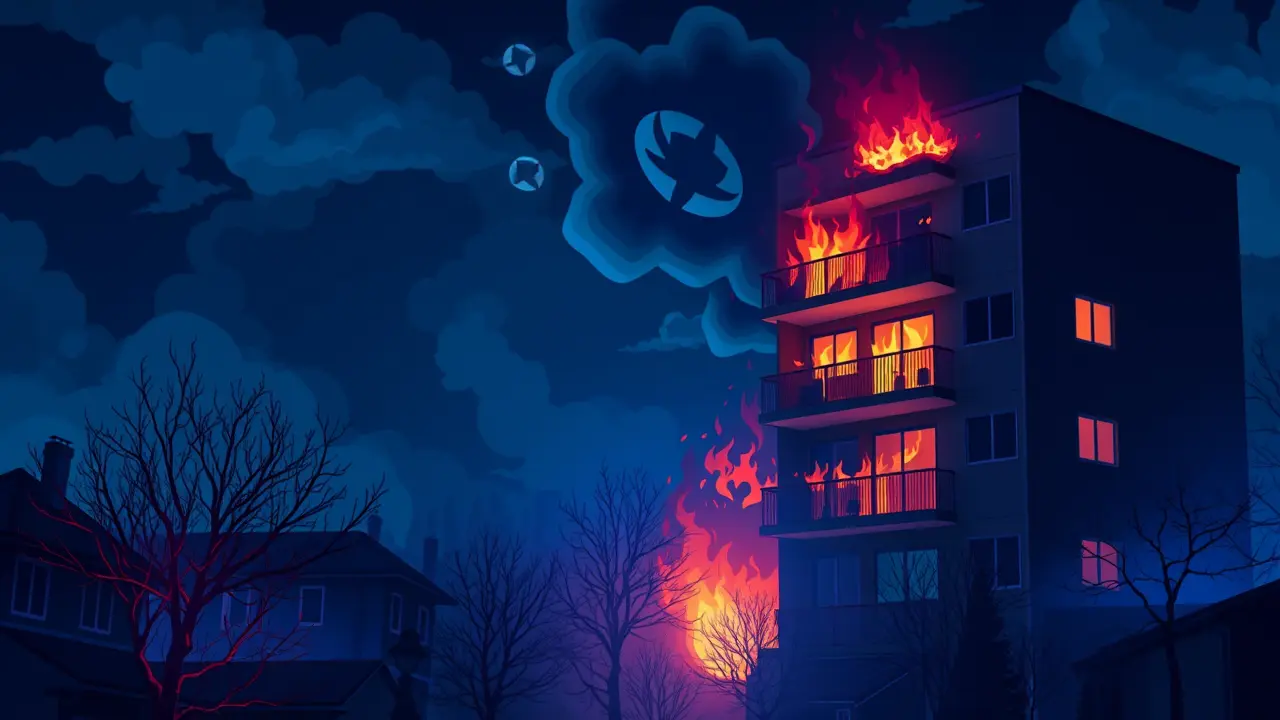
Otheraccidents & disastersExplosions and Fires
Deadly fire kills 10 in Bosnia nursing home.
EM
1 month ago7 min read1 comments
A devastating fire erupted on the seventh floor of a nursing home in the Bosnian town of Tuzla, a tragedy that has, with a grim and heartbreaking finality, claimed the lives of ten vulnerable souls. The news, first crackling across local media reports in the early, dark hours, immediately sent a shockwave of grief through the community, a stark reminder of how quickly routine can be shattered by catastrophe.This isn't just a statistic; it's a profound human crisis, a scene of unimaginable terror for the elderly residents who faced suffocating smoke and impassable flames in a place they called home, a place meant to be a sanctuary in their final years. The facility in Tuzla, a city still bearing the scars of the Balkan conflicts of the 1990s, now becomes the epicenter of a new kind of sorrow, raising urgent, painful questions about safety protocols, emergency preparedness, and the societal value we place on our most fragile citizens.Initial reports point to a rapidly spreading blaze that trapped individuals on the upper floor, with firefighters battling not only the flames but also the inherent challenges of evacuating immobile and often disoriented elderly people from a multi-story building under extreme duress. We must consider the broader context of social care infrastructure in post-war Bosnia-Herzegovina, where funding shortages and bureaucratic complexities often leave public institutions, including healthcare facilities, operating with outdated equipment and understaffed conditions.This tragedy echoes other horrific nursing home fires across the globe, from the 2011 fire in Russia that killed 31 to the 2014 incident in Quebec that claimed 32 lives, each one a harrowing lesson in the catastrophic consequences of neglected fire safety measures, from a lack of modern sprinkler systems to insufficient staff training for emergency evacuations. Experts in disaster management and elderly care will undoubtedly descend upon Tuzla in the coming days, their investigations focusing on the origin of the fire, the building's compliance with fire codes, the adequacy of the staff's emergency response, and the functionality of alarms and suppression systems.The consequences of this event will ripple far beyond the immediate families plunged into mourning; it will trigger a necessary but painful national conversation about regulatory oversight, demanding accountability from local and national government bodies responsible for licensing and inspecting such facilities. The psychological impact on the survivors, the staff who fought to save lives, and the first responders who witnessed the aftermath will be deep and lasting, requiring comprehensive support systems that are often overlooked in the immediate glare of the news cycle.For the people of Bosnia, this is a collective wound, a moment that forces a reckoning with how a society protects its elders, a test of its resilience and its capacity for reform in the face of preventable disaster. As the community gathers to mourn, holding vigils and offering condolences, the world watches, reminded of the universal vulnerability of age and the absolute, non-negotiable duty of care we owe to those who have come before us.
#featured
#fire
#nursing home
#fatalities
#Tuzla
#Bosnia
#tragedy
#emergency response
Stay Informed. Act Smarter.
Get weekly highlights, major headlines, and expert insights — then put your knowledge to work in our live prediction markets.
Comments
Loading comments...
© 2025 Outpoll Service LTD. All rights reserved.